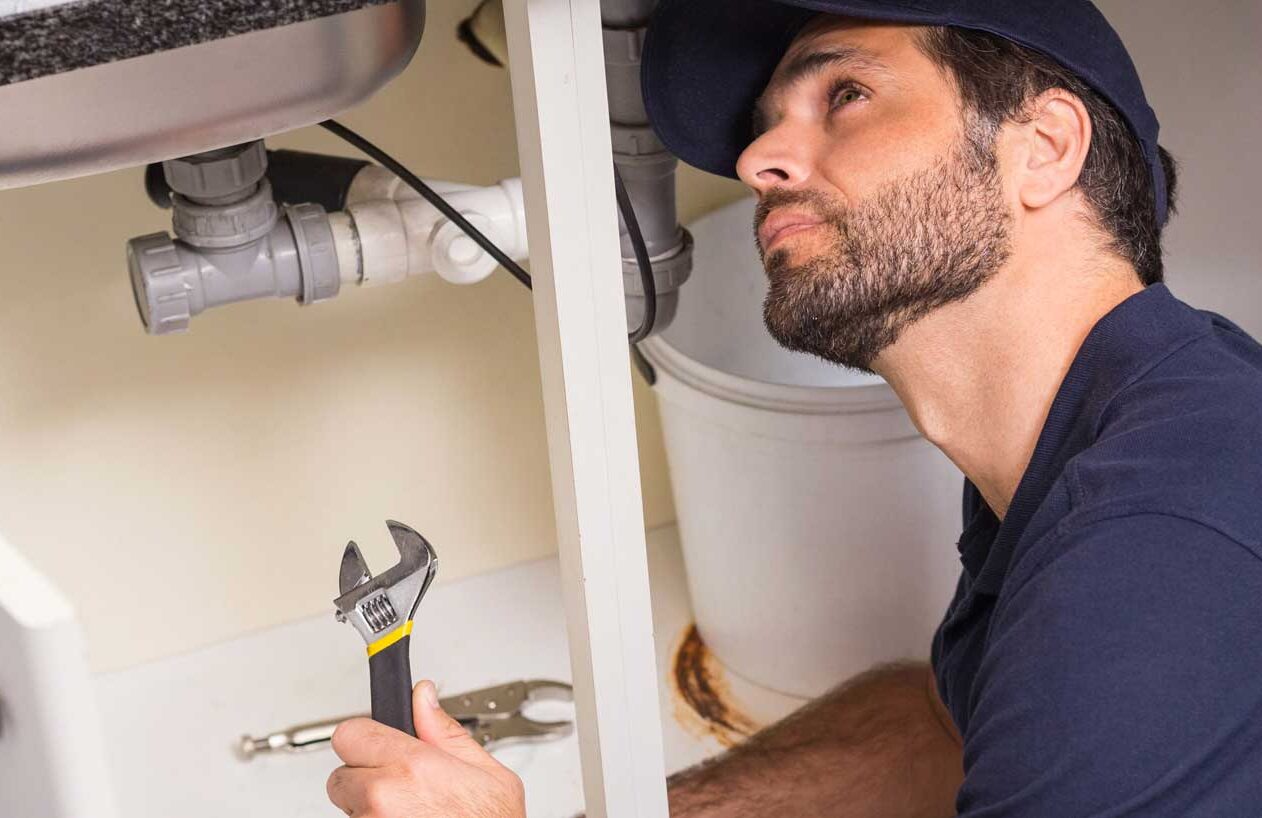Dealing with a clogged drain is inconvenient, messy, and often expensive. A backed-up pipe can flood your home, damage belongings, and require complex drain cleaning. The best approach is preventing clogs before they happen. With a mix of vigilance and good household habits, you can avoid many drain blockages. To help homeowners reduce drain clogs, here are 10 tips from professional plumbers.
Monitor What Goes Down Your Sinks
The first step to prevent clogs is paying attention to what goes into your sinks and drains. Solid materials should be kept out of your pipes. Never put food items, grease, paper towels, diapers, newspaper, dental floss, hair, cotton balls or other bulky solids into drains. These accumulate over time and cause major obstructions. Simply throwing them in the trash instead saves significant hassle.
Use a Drain Screen
Sink drain screens catch many materials that would otherwise clog pipes. Install screens on all your household sinks to keep debris from entering the drain. Clean these screens regularly to prevent overflow into the drain itself. Drain covers and strainer baskets serve a similar purpose for shower and tub drains. Properly installed and maintained, drain screens significantly reduce clog frequency by keeping plumbing clear.
Be Careful with Grease
Grease and fat easily coat pipes, causing gradual narrowing and eventual blockages. Never pour fats, oils, or grease down the drain after cooking. Instead, keep an empty can to collect greasy runoff and throw it directly in the trash once cool. For dishes coated in grease, scrape food scraps into the trash and wipe most grease off plates with a paper towel before washing. Avoid using hot water, which liquefies grease but allows it to re-harden within pipes.
Use a Catch Hair Trap
Loose hair is notorious for forming tough and disgusting drain clogs. Stop it from going down the shower and sink using hair catchers to trap strands near the drain. Clean hair from these traps regularly. For tubs without accessible traps, consider a product that collects hair around the perimeter of the drain. No products fully prevent hair buildup, so continue using drain cleaners monthly.
flush with Boiling Water
Weekly Flushing pipes regularly keeps water moving fast enough to carry away debris before it sticks to pipe walls. Once a week, bring 2-4 quarts of water to a boil, then pour the hot water down each drain. The temperature loosens grease while the volume flushes light sediment. Finish by flushing with plenty of cool water. Avoid pouring other hot liquids like soups or oils, which solidify as they cool.
Use a Plunger at the First Sign of Clogs
A sluggish drain is an early warning of obstructions forming. At the first sign, a forceful plunge can sometimes break up minor clogs. Cover the overflow hole securely with a wet rag, then repeatedly plunge the drain for a minute or two to clear the pipe. Stop immediately if this makes no difference or the sink begins to fill. Leaving complete obstructions could cause dirty water to back up or damage pipes.
Consider Enzyme Cleaners and Acid Treatments
For persistent problems, utilizing chemical drain maintenance can help control buildup. Enzyme cleaners dissolve materials including hair, grease, paper, and food waste. They come as powders and liquids designed to treat specific drain types. Enzymes digest gunk but won’t harm plastic or metal pipes. For rust and hard water mineral deposits, highly diluted acid solutions help dissolve scale over time.
Have Drains Professionally Cleaned
If you’ve tried screens, enzyme cleaners and plunging to no avail, the drain needs a comprehensive deep clean. Hire a licensed plumber to clear pipes using high-powered water jets or manual augers. Professionals have camera systems to locate all clogged sections, extract the nastiest of obstructions and clean the full length of sewer and main drain lines. This removes current clogs and lets you restart prevention measures from a clean slate.
Don’t Use Harsh Chemicals
While enzymes and mild acids have cleaning purposes when used carefully, harsh drain products often do more harm than good. Avoid chemicals containing lye, bleach, ammonia, and other toxic substances. Though this blast away clogs quickly, they corrode pipes, eat holes in metal, weaken joints and produce noxious indoor fumes. Over time this leads to leaks, water damage and dangerous gas buildup. Play it safe by sticking to enzyme cleaners.
Install Hair Catchers and Screens
Finally, hair catchers and drain screens are your first line of defense to keep pipes clear. The occasional plunge or enzyme treatment tackles whatever sneaks past screens. But filters prevent the need for frequent harsh chemicals while stopping most clogs at the source. Screens, baskets, and catchers tailored to different drains cost just a few dollars each. Yet over years the headache they save makes the small investment hugely worthwhile for homeowners serious about preventing clogged drains.
Final words
Following these key tips from Auckland and New Zealand’s top plumber like MGP helps steer clear of disgusting, frustrating and costly clogged drains. A few simple daily habits and regular maintenance make a world of difference for problem-free household pipes. Implement two or three new precautions at a time until you find the ideal routine for your plumbing’s needs. Master long term preventative care rather than reactionary fixes for cleaner, clearer, and healthier home drains. Call us now!

